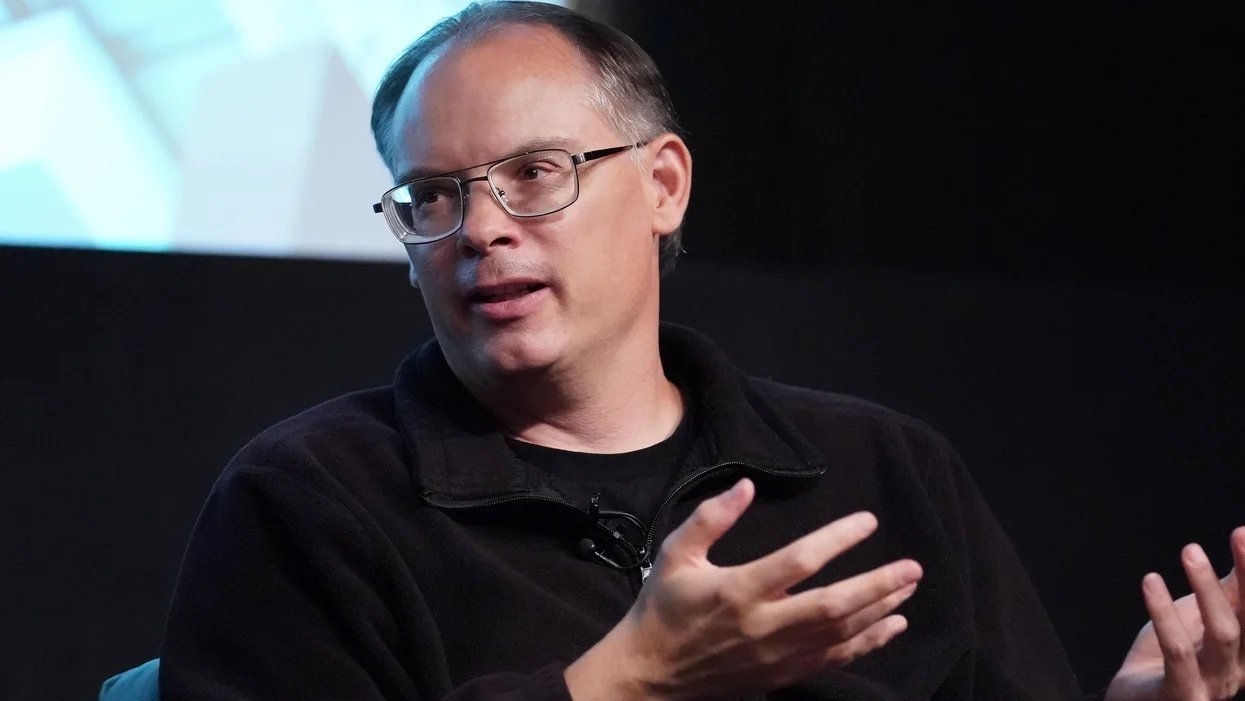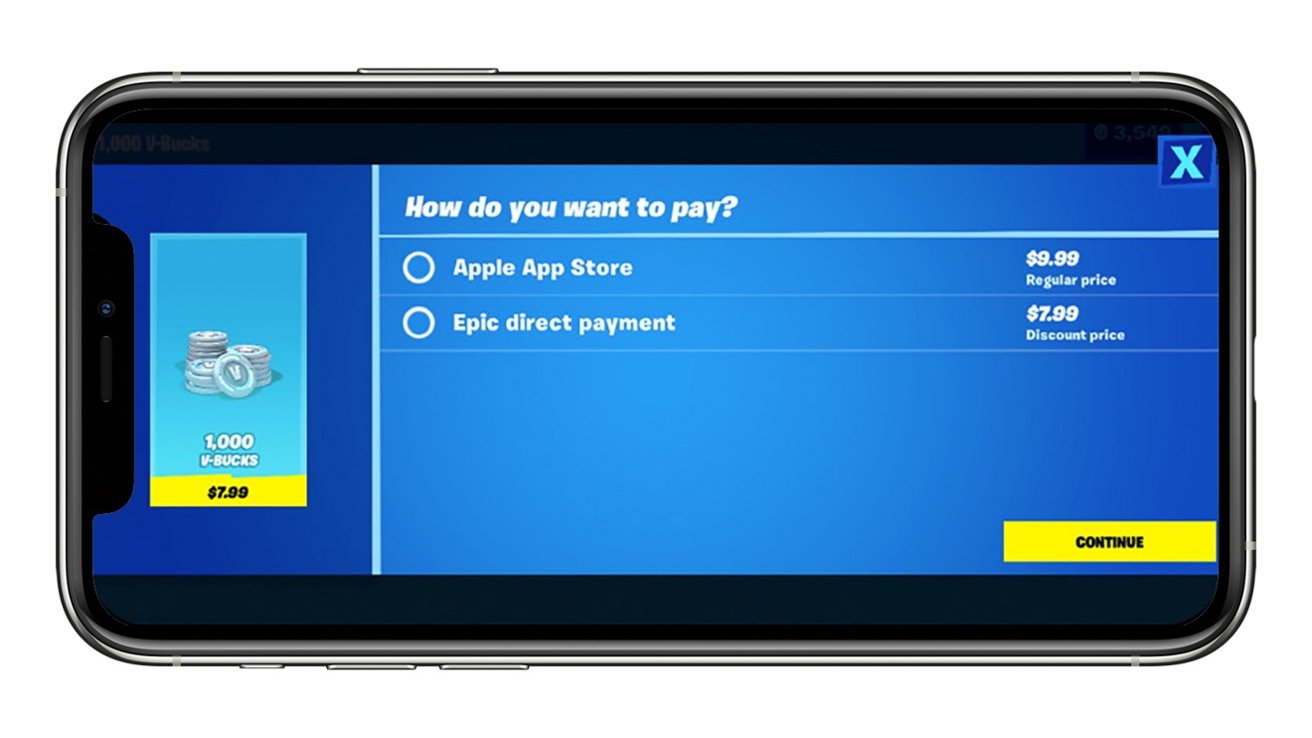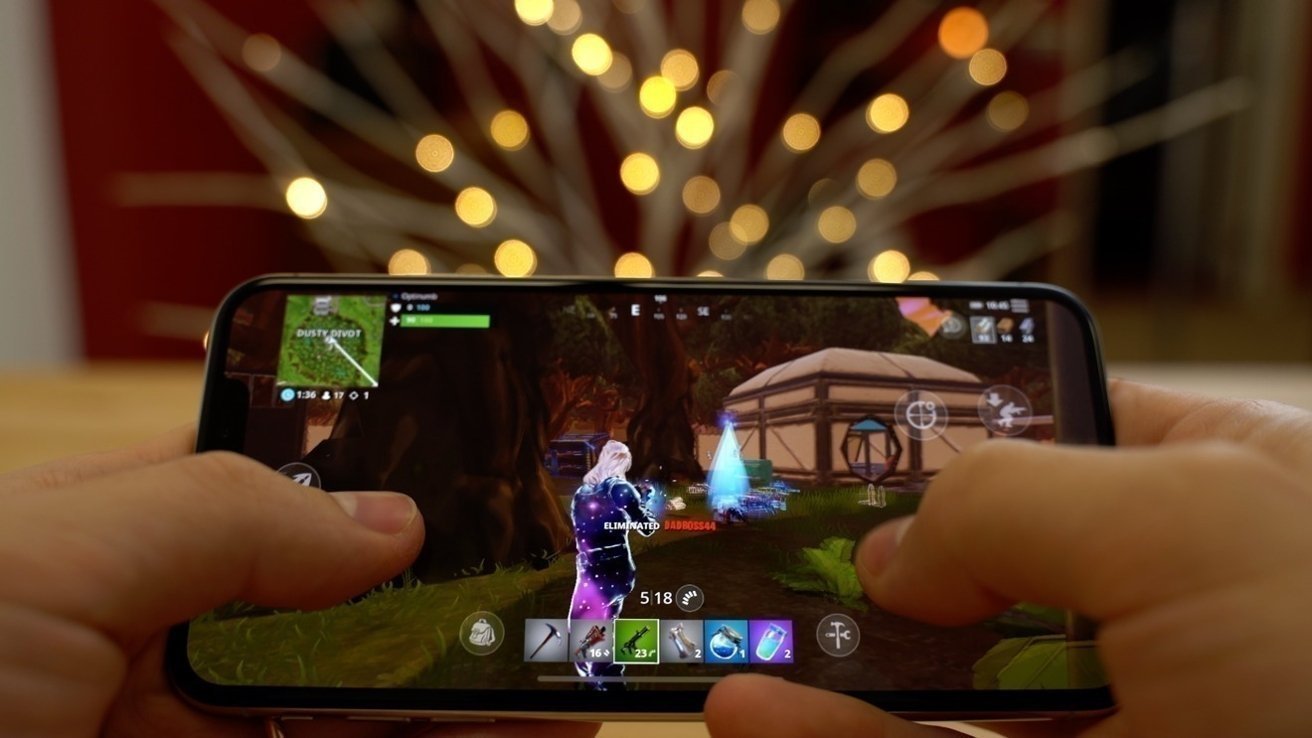Billion dollar battle: Picking an App Store fight with Apple cost Epic Games greatly
Epic Games' fight to change Apple's App Store rules has been an expensive activity for the game maker, with CEO Tim Sweeney believing it could ultimately cost the company more than $1 billion.

Tim Sweeney - Image Credit: Epic Games
The big courtroom battle between Epic Games and Apple over the App Store commission, third-party app storefronts, and alternative mobile payments has taken years to progress. With accusations that Apple lied under oath and sanctions against Apple for violating an injunction in April, there's still some fight left in the battle.
However, such a high-stakes war over fundamental elements of the App Store has taken a toll, and not just on Apple. Epic Games has also lost out by picking the fight in the first place, and at a massive level.
Speaking to Business Insider on Tuesday, Epic CEO Tim Sweeney says that the effects of the battle has resulted in a lot of lost revenue for Epic.
Missed earnings
The battle started in August 2020, by Epic slipping an alternate payment system into Fortnite for iOS. The mechanism, a way to work around Apple's 30% fee for its App Store payment system, predictably resulted in Apple pulling the game from the App Store for violating its guidelines.
That triggered the massive courtroom battle, but also impacted Epic financially. With no Fortnite in the App Store, Epic had cut off a big source of revenue for the company.

The offending alternative payment option in Fortnite that caused the lawsuits
In his interview, Sweeney details that the legal fees alone cost more than $100 million to Epic. However that pales in comparison to the lost iOS revenue.
Sweeney admits that Epic cannot predict exactly how much revenue it missed out on from iOS, but it knows that it made about $300 million on iOS in the two years Fortnite was available on there. It's easy to project hundreds of millions of dollars in lost revenue because of the lawsuit, he insists.
Metcalfe's Law was a factor too, Sweeney adds, as friends would typically play where their friends were. That means Apple's takedown of Fortnite not only immediately affected players of the game on the platform, but also friends who may have joined at a late time.
"So you could easily imagine that there's been a billion dollars or more of impact to Epic in this time," Sweeney reasons.
The Fortnite return
While Epic has lost out a lot of hypothetical income from years of App Store exclusion, it certainly has a chance to catch up. Sweeney offered shortly after the injunction ruling that Fortnite could return to the U.S. App Store later in the week. Epic does have a valid Apple developer account in good standing, via a subsidiary, Epic Games Sweden. The account was set up so that Fortnite could be distributed in the European Union.

Fortnite, when it was allowed on iOS
So far, Epic's talks with Apple's developer relations team via the account have been characterized by Sweeney as "cordial." He is also confident that the game will be available on iOS soon.
Sweeney would be surprised if Apple chose to "brave the geopolitical storm" by blocking a major app like Fortnite after what happened in court.
An important ruling
The latest courtroom action was a major one for Epic and Sweeney, who continues to insist that consumer and developer freedom is important. A gatekeeper, which he offers to describe Apple's position in control of the App Store, makes the world less free than the one people experienced decades ago.Summarizing the effects of the ruling, Sweeney says that it allows users to be free to learn about better deals from developers. For developers, they can accept payments from outside the app, and can tell users about those methods.
While that's a first-order effect, Sweeney offers that a second-order effect is that, if Apple continues to offer "such a horrible deal" to developers, that those same developers will move away to other platforms and mechanisms for payment.
He wishes that Apple will be forced to compete, and to give developers a better deal than a 30% transaction fee.
Read on AppleInsider

Comments
https://fortnite.gg/player-count
https://www.demandsage.com/fortnite-statistics/
Around 30 million daily active players, 650 million player accounts. $40 billion in lifetime revenue.
This is what gave Epic the ability to lose $1b on a lawsuit.
According to a recent interview, Epic still spends more than they make though so once the one-hit-wonder game finally loses player interest, their situation will be different.
It's crazy how such a repetitive, mindless game has lasted so long and generated so much revenue.
Epic is also trying to get big game studios hooked on Unreal Engine and their store, which will tie their products to their company success. Apple has options to undermine this but they need to partner with the studios.
The likely worst outcome is that Apple is forced to lower their fee to 15% to avoid big developers processing fees externally. There's a single digit percentage that is break-even for any developer/publisher processing revenue at scale and as long as the fee is at a reasonable level, they will use Apple's setup.
Did the definition of “one-hit-wonder” change recently? Maybe I’m showing my age a bit (and I know the company is a very different company in 2025), but: I’ve been playing Epic Games hit after Epic Games hit since the 90s. I still load up Unreal Tournament 2004 every now and then and that hit came out back in… well, 2004, lol.
Although you might be showing your age as well because that was very much an ‘Old Man, Kids These Days, Back In My Day, Don’t Know What Real Games Are, Get Off My Lawn’ type of comment, lol.
https://www.statista.com/statistics/1234185/epic-games-annual-revenue-segment/
https://www.tweaktown.com/news/103306/over-75-of-epic-games-store-revenue-comes-from-first-party-titles-like-fortnite/index.html
If people stopped playing (or just paying for it), the company would struggle to survive at the size it is now. It has to happen eventually.
They have been trying to grow their store to generate revenue but with 12% or lower margins, it would have to scale much higher to be enough. They'd need to be a dominant store on mobile.
Young adults play it and stream it and it's still a terrible, repetitive game:
https://www.youtube.com/watch?v=YHmblPPOXbg
The way people behave when playing it isn't healthy either:
https://www.youtube.com/watch?v=9xGVEv1Heqo
It's clear why it would have some appeal but not 650 million registered players and 30 million active per month after 7 years. This is more than GTA.
Fortnite will die out eventually and this will leave Epic with a massive funding shortfall and this is what they aren't being honest about. Epic is trying to position themselves as a platform so that they can generate revenue from other creators the same way that Apple and Valve do because it's key to their long-term survival, while dishonestly trying to convince people that what Apple and Valve are doing is wrong. Their game engine helps them in this regard because it helps tie big game developers' products to their company's success. Big game studios need to be wary of this but they are all being convinced to play along by getting a good rendering engine. If there was an open, industry-standard rendering engine, big developers wouldn't even consider using Unreal Engine.
I don't know why the big game companies haven't done this already - EA, Valve, Take Two (Rockstar), Microsoft, Ubisoft, CD Projekt RED, Crytek etc. They all have their own engines with varying quality and have to maintain them. At some point in the past, the engine was a competitive aspect for a company. These days it's just a headache to maintain them while also building huge products in parallel. Instead of working together, a lot of them are just giving up on internal tools and buying into Unreal when they could build a better product between them on open standards without royalties and without depending on a 3rd party company staying in business.
"Here’s the options as I understand them:
1. Unjust Enrichment.
This kicks in when a company profits unfairly at someone else’s expense, especially where no legitimate contractual justification exists (DON”T Scream. I am NOT saying there is or there isn’t, but the case is at the top, so it passed the initial tests of reasonableness to proceed).
While it’s typically a civil remedy (not a regulatory tool — let’s not get into regulators, but look what they did to the telecoms industry and rightly so, in the last century, to break up Ma Bell’s monopoly), it’s often part of a broader case that looks at whether a company has gained financially through market distortion, manipulation or bad faith. Given the length of this case and others, that seems a given, to be underway — no?
2. Antitrust and Monopolistic Practices
Judges can and regularly do rule against companies for anti-competitive behaviour that harms consumer welfare. Epic have painted a picture of how Apple harm consumers by painting a picture of how Apple’s “price gouging” is forcing them to charge more to consumers than they want to. Not for us to question, but for the law to decide: Are consumers’ interests being threatened, and effectively being double-charged, by Apple, and by Epic raising its prices by being forced to cover the “Apple Tax.” In the eyes of the law this is a legitimate question and is not the easy pushover everyone seems to think it is just because it’s “Apple’s store.”
Let me just say Rosa Parks at this point, and sit with that for a second.
One more minute. Did that sink in?:
It’s not just about whether Apple’s 30% cut is high; it’s about whether Apple’s total control of the iOS platform illegally restricts competition and access. If developers have no way to reach iPhone users without accepting Apple’s terms, that could appear as monopolistic coercion.
Rosa Parks. Again, sit with that for a second.
Before running to Apple’s defence, remember this is a matter of law NOT a matter about who is an ass, or whether the law is an ass or if the judge is behaving like one or if Apple gaslighted the law.
It’s a matter of the law, and jurisdiction. The Court seems to have it, irrespective or whether the proposed remedy was over-reach.
Practices like “tying” (forcing use of one product or service to access another) and closing off competitive market access fall squarely under this.
3. “Reasonableness” in Commercial Contracts
Even in a free market, courts can step in if pricing schemes violate principles of good faith, fair dealing, or broader public policy.
If a contract or business practice is found to be so one-sided that it effectively removes the counter party’s ability to negotiate or traps them in a take-it-or-leave-it scenario that’s where courts get involved. Like it or not, it would seem they have a right to seek jurisdiction here, however “unfair” you might feel this is on Apple.
Gregg: Important Distinction — your analogy to a bricks and mortar store earlier.
Brick-and-mortar stores aren’t under the same scrutiny because customers can literally walk down the street and choose a competitor. But with Apple, developers can’t do that. If you want to sell to iPhone users, you’re stuck with the App Store. That’s a closed market, and it’s that lack of real alternatives that brings in antitrust scrutiny.
So this isn’t about judges setting prices but it’s about them weighing up whether a company is eliminating natural competitive forces that would normally keep prices in check.
If Apple’s behavior is found to block competition and manipulate market conditions, the courts absolutely have the power to force change under antitrust law. Not because 30% is “too high,” or too low but because no functioning market exists to challenge it.
And people are being denied their right to a fair and competitive system, under the law, to ensure prices are not “too high or too low” but fairly set by market forces. Hence all the antitrust and monopoly laws.
This seems to be the point where everyone falls down and starts wailing about poor Apple and their right to set prices in their own store. They do, but only if there is fair access to it, not just because “it’s fair and Apple is the company wot built it so theyz can do anything OK?”
Does the bus company have the right to tell black people where they can sit and give white people a pass to sit at the front? No. But it took someone to challenge that to get rid of the status quo.
Rosa Parks.
Yes, yes hyperbole.. but sometimes it seems like the only way of getting through.
No don’t suddenly go “what if but well I THINK APPLE SHOULD BE ALLOWED TO DO anything it wants it its store.” Because it can’t. It’s not OK, under the law, whether it’s 5% or 30%, if there’s no natural force in play acting as a balance to, if you like use competition to enable price and discovery and legitimacy.
The above areas of law become directly relevant to Apple and its practices and the judge probably does have jurisdiction to throw the book at Apple if some company complains about access and fairness and unjust enrichment at the expense of consumers.
Which is exactly what Tripp Mickle says has occurred.
And if it's upheld, then he’s won, and Apple will have been a complete ass for losing its grip over its walled garden by kicking so many asses for so many years and making Apple Legal a “profit centre” as disclosed a few years ago in another case, that through sheer hubris and refusal to at least be seen to be fair will have kicked itself in the ass so hard things will never be the same again, and the next domino to fall will be another of it’s services, when challenged on whatever spurious grounds someone comes up with.
I am basing much of this on my knowledge of UK law in these areas but the UK and US have very similar legal systems and structures, so with what I know about US law, what I’ve written I don’t think, is over-reach. However, US courts are much more reactionary and prone to kick ass than UK courts out of personal spite or opinion, so with that thrown in the mix you have the perfect storm.
Which is why I always say, don’t end up a target of regulators and the judiciary by visibly treating them like asses, because chances are they will be determined to take you out, over time, and like a Terminator, will just never give up until they’ve taken a chunk out of your ass for daring to mock them in public or worse still, be shown to have done so in private memos or emails during disclosures.
So the very fact this case reached the courts and has churned around in it for so long (and in other cases too, giving form to many similar claims out of the box) means a credible claim of market distortion already passed initial tests.
And this one went all the way to the top, where the judge decided Apple had made an ass of her and the law, and threw the gavel at Apple."